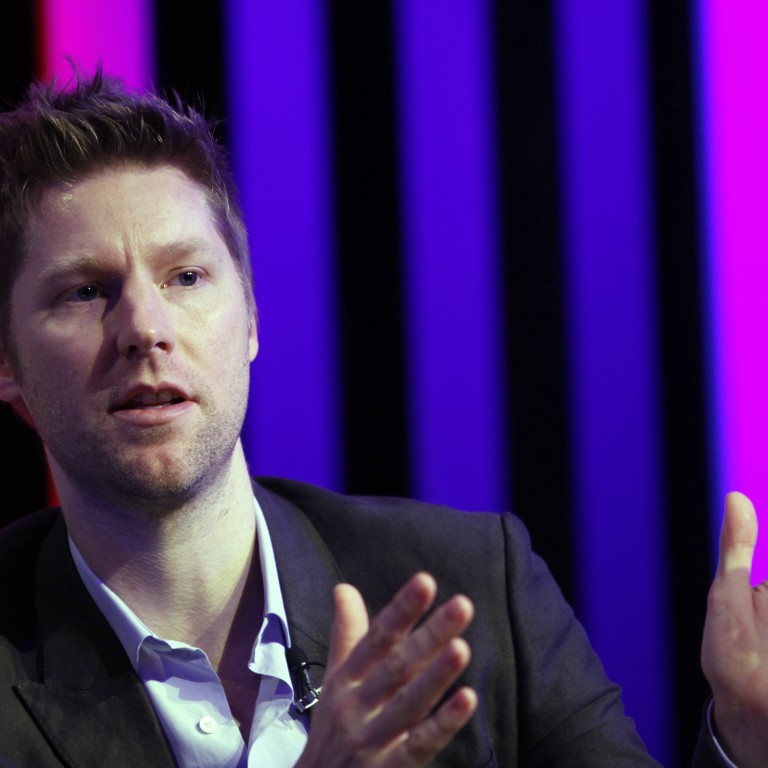
Burberry bleating shows analysts' disdain for design
Critics cast doubt over the long-standing Burberry executive's ability to run the luxury goods group, given his pure design background
If you want to know how little the investment community understands about business, just look at the response to the appointment of Christopher Bailey as chief executive of Burberry, the British-based luxury goods group.
Following the announcement of his appointment last week, the company's shares slipped 8 per cent and investment analysts queued up to say that giving the top job to Bailey produced unnecessary risks, stressed that it was unconventional and smugly declared that he couldn't possibly understand all the demands of this complex job.
What, you may ask, has provoked all this criticism about the elevation of a long-standing Burberry executive?
It is not that this 42-year-old is relatively young because many of his critics are a lot younger, and it is certainly not that Bailey does not understand the business. His "crime" is, or maybe it's his "fault", that he was previously Burberry's chief creative officer - a job title that we common folk would understand as being that of the head designer.
In the investment community … very few people have run a business that is sordid enough to make or sell products to the public
Gosh, how can anyone expect a mere designer to run a complex luxury goods company? Surely this is, as Bailey's critics suggested, unprecedented?
The answer is no. Indeed, most of the leading fashion brands were run by the designers who founded these houses. Think Dior, Armani, Paul Smith, Donna Karan, etc. Indeed, it is hard to think of a leading fashion house that does not have its founder's name attached to it or one that was not led by these designers.
Put this to the clever investment analysts who have just informed us how dangerous it is to have a mere designer at the helm of a fashion company and, because they are clever, they will quickly come up with an answer. Yes, they will concede, designers have indeed led fashion brands but they were "only" the company's founders. Once they retired or sold their businesses, they could be placed in the safe hands of an executive who had been to business school or come up through the only route of business that matters, the finance side of things.
And here's the rub because in the investment community's insular world very few people have run a business that is sordid enough to make or sell products to the public.
They wouldn't know how to knock up a seam in an apron, let alone how to produce an omelette good enough to persuade a customer that it's worth laying out some folding notes.
Instead, they can read balance sheets, are really dab hands at constructing business projections that are more or less worth the paper they are printed on but little more, and, of course, they tend to have been to business schools where arrogance is not discouraged.
Thus the people who manage big equity funds and their little army of analysts instinctively feel that the companies in their portfolios should be managed by people who are very much like them and come from their kind of background.
They seem not to have noticed that the genius required to establish a major luxury brand and sustain it is highly likely to come from someone who both understands the products and has the vision to keep the brand relevant and innovative.
Naturally, they will admit that these skills are required and even like to give an airing to some of those arty types from the creative side of brand companies when putting together a roadshow or something similar.
But they know in their heart of hearts that these creative people can be a bit flaky and probably don't really understand business. If they succeed as company directors, they are merely lucky, and if they fail, well, didn't they tell you that you really can't expect to sustain a business that is not run by someone who has spreadsheets for breakfast and an MBA tucked in their back pockets?
Bailey's predecessor at Burberry is the competent Angela Ahrendts, who is off to run Apple's retail operations. Did you hear a squeak from any of the clever investment analysts questioning her facility with hi-tech products after spending so much time at the heart of fashion? No, you did not because although she had the temerity to be a success after a lifetime in the fashion industry, she was not tainted by design, having come from the marketing end of the business.
There is absolutely no guarantee that Bailey will succeed, but equally there is no intrinsic reason why he should not.

